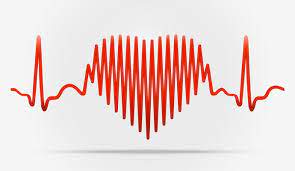Source: healthitanalytics.com
September 11, 2020 – A machine learning model was able to detect different clusters of gut bacteria that could potentially identify individuals with existing cardiovascular disease (CVD), according to a study published in the journal Hypertension.
Recent studies have found a link between gut microbiota, the microorganisms in human digestive tracts, and CVD, the leading cause of mortality worldwide. Gut microbiota is highly variable between individuals, and differences in gut microbial compositions between people with and without CVD have been reported.
“Based on our previous research linking gut microbiota to CVD in animal models, we designed this study to test whether it is possible to screen for CVD in humans using artificial intelligence screening of stool samples,” said Bina Joe, PhD, FAHA, the study director, Distinguished University Professor and Chairwoman of the department of physiology and pharmacology at the University of Toledo in Toledo, Ohio.
“Gut microbiota has a profound effect on cardiovascular function, and this could be a potential new strategy for evaluation of cardiovascular health.”
Researchers used data from the American Gut Project, an open platform for microbiome research based in the US. The team leveraged innovative machine learning methods to analyze microbial composition of nearly 1,000 stool samples. Approximately half of the samples were from people with CVD.
Researchers found that the model was able to identify different clusters of gut bacteria that could potentially help identify individuals with and without CVD. The results show the potential for machine learning and artificial intelligence to improve CVD screening.
“Despite the fact that gut microbiomes are highly variable among individuals, we were surprised by the promising level of accuracy obtained from these preliminary results, which indicate fecal microbiota composition could potentially serve as a convenient diagnostic screening method for CVD,” Joe said.
“It is conceivable that one day, maybe without even assessing detailed cardiovascular function, clinicians could analyze the gut microbiome of patients’ stool samples with an artificial machine learning method to screen patients for heart and vascular diseases.”
Researchers have previously used machine learning to improve cardiovascular disease treatment and detection. A study published in Cardiovascular Research showed that machine learning tools could predict patients’ long-term risk of heart attacks and cardiac deaths better than standard methods used by cardiologists.
In that study, researchers found that subjects’ predicted machine learning scores aligned accurately with the actual distribution of observed events.
“In this prospective trial, machine learning demonstrated high performance in risk assessment for myocardial infarction and cardiac death in asymptomatic subjects,” the researchers stated.
“By objectively combining clinical data and quantitative CT measures, machine learning provided significantly superior risk prediction compared with the coronary artery calcium score. These promising results suggest that machine learning has a potential for clinical implementation to improve risk assessment.”
In a separate study published in 2018, a team from Stanford University were able to create a personal health management tool that combined EHR data and machine learning algorithms to accurately diagnose the heart condition known as abdominal aortic aneurysm (AAA).
Researchers used the hierarchical estimate from agnostic learning (HEAL) health management tool to analyze patients’ genome sequences and EHRs to identify individuals with the cardiovascular disease.
“For each individual, HEAL accurately predicted his/her AAA risk using personal genome and EHR data. On the other hand, for the same individual with newly adopted lifestyles resulting in physiological changes (e.g., from a high cholesterol to a low cholesterol diet), HEAL can immediately update his/her AAA risk upon corresponding changes conditioned on the person’s genome baseline,” Stanford researchers said.
“This allows us to further investigate the interplay between personal genomes and lifestyles underlying disease predisposition.”
As machine learning and AI become more widely used in healthcare, these tools could make the transition from research to clinical care for improved patient health and outcomes.
